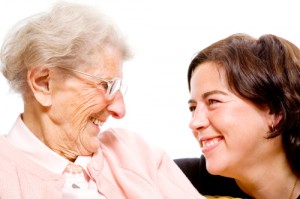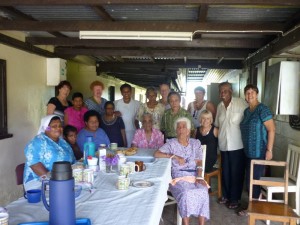 I have been spending a lot of time recently in residential aged care homes sitting watching the people who live there and those who care for them.
I have been spending a lot of time recently in residential aged care homes sitting watching the people who live there and those who care for them.
It struck me as I watched carers at work just how self-focused they had become. I watched a lifestyle staff member leading a group of people with dementia in an activity focused on Bastille Day and she was doing a good job of keeping people focused and enjoying it. However, as happens a few people became restless and began to walk away, one walking up close to someone else and causing some disturbance and another wanting to walk with a person who was listening. Someone else was snoring loudly and making it difficult for others to hear!
What is unusual about this was that there were two care staff nearby writing in files. This is a necessary part of the day but right at that moment they were treating their colleague as a “sitter”, someone to “mind” their people while they got on with their writing. This is not just a problem invovling care staff. It occurs with all staff groups.
What would have been more respectful of their colleague and more helpful in maintaining their residents in a good emotional state would be to assist their colleague by remaining engaged and attentive to what was happening in the group and intervening when needed.
Unfortunately this attentiveness can be rare, especially when staff are so focused on their own work that they lose sight of the bigger picture and the TEAM focus. Each different type of staff member contributes differently to the success of the day by assisting all others to achieve their own goals.
The consequence for the person in our care is they they are not the focus of our care attention – our job completion is. This becomes staff/organisation-centred care – not person-centred care. This is just one small way in which the institution and our work habits can get in the way of person-centred care.
What is your experience? Does this happen where you work? How can we organise our workplaces better so we have better cooperation among colleagues and more person-centred work practices?


